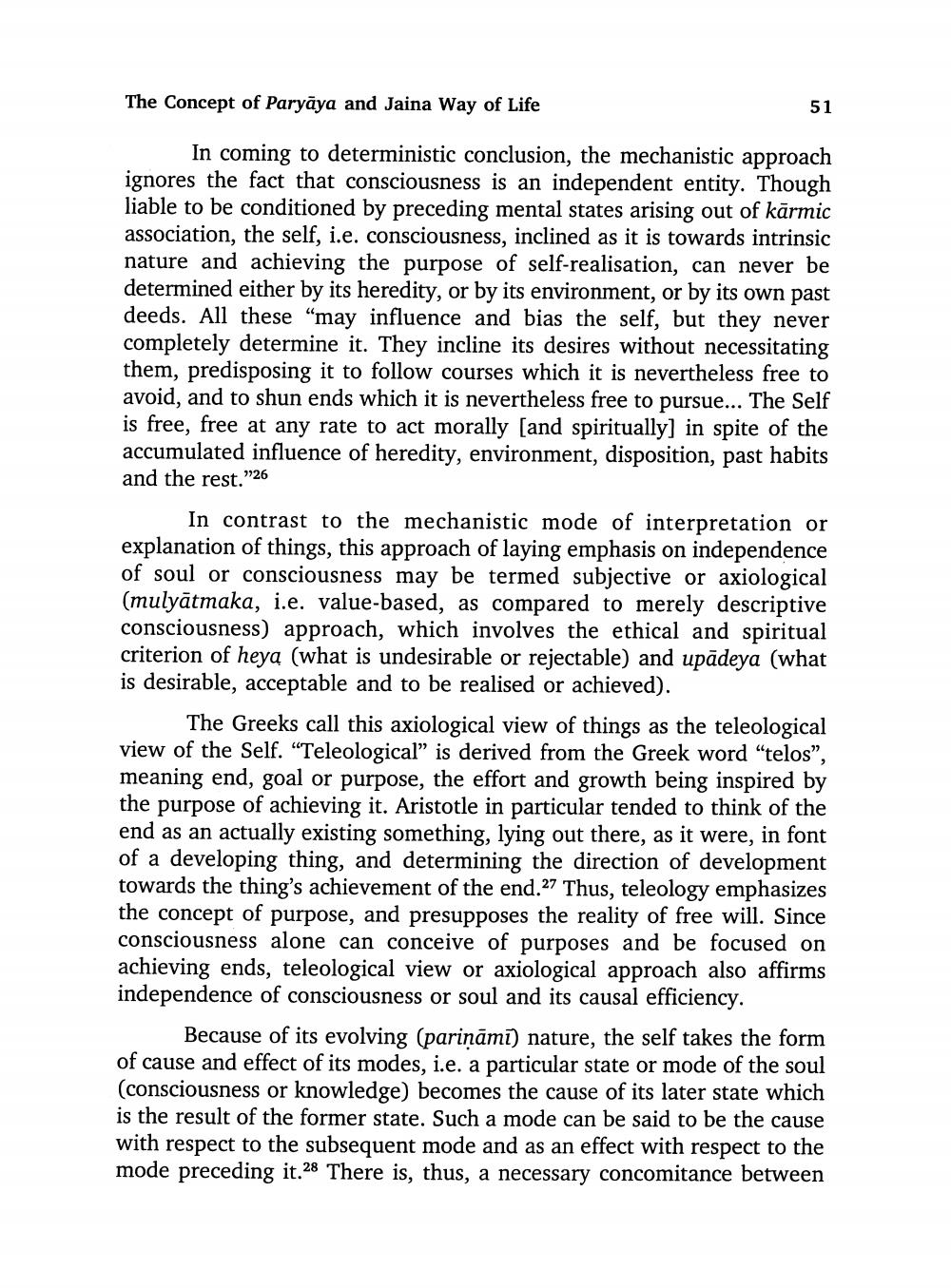________________ The Concept of Paryaya and Jaina Way of Life 51 In coming to deterministic conclusion, the mechanistic approach ignores the fact that consciousness is an independent entity. Though liable to be conditioned by preceding mental states arising out of karmic association, the self, i.e. consciousness, inclined as it is towards intrinsic nature and achieving the purpose of self-realisation, can never be determined either by its heredity, or by its environment, or by its own past deeds. All these "may influence and bias the self, but they never completely determine it. They incline its desires without necessitating them, predisposing it to follow courses which it is nevertheless free to avoid, and to shun ends which it is nevertheless free to pursue... The Self is free, free at any rate to act morally [and spiritually] in spite of the accumulated influence of heredity, environment, disposition, past habits and the rest."26 In contrast to the mechanistic mode of interpretation or explanation of things, this approach of laying emphasis on independence of soul or consciousness may be termed subjective or axiological (mulyatmaka, i.e. value-based, as compared to merely descriptive consciousness) approach, which involves the ethical and spiritual criterion of heya (what is undesirable or rejectable) and upadeya (what is desirable, acceptable and to be realised or achieved). The Greeks call this axiological view of things as the teleological view of the Self. "Teleological" is derived from the Greek word "telos", meaning end, goal or purpose, the effort and growth being inspired by the purpose of achieving it. Aristotle in particular tended to think of the end as an actually existing something, lying out there, as it were, in font of a developing thing, and determining the direction of development towards the thing's achievement of the end.27 Thus, teleology emphasizes the concept of purpose, and presupposes the reality of free will. Since consciousness alone can conceive of purposes and be focused on achieving ends, teleological view or axiological approach also affirms independence of consciousness or soul and its causal efficiency. Because of its evolving (parinami) nature, the self takes the form of cause and effect of its modes, i.e. a particular state or mode of the soul (consciousness or knowledge) becomes the cause of its later state which is the result of the former state. Such a mode can be said to be the cause with respect to the subsequent mode and as an effect with respect to the mode preceding it.28 There is, thus, a necessary concomitance between




